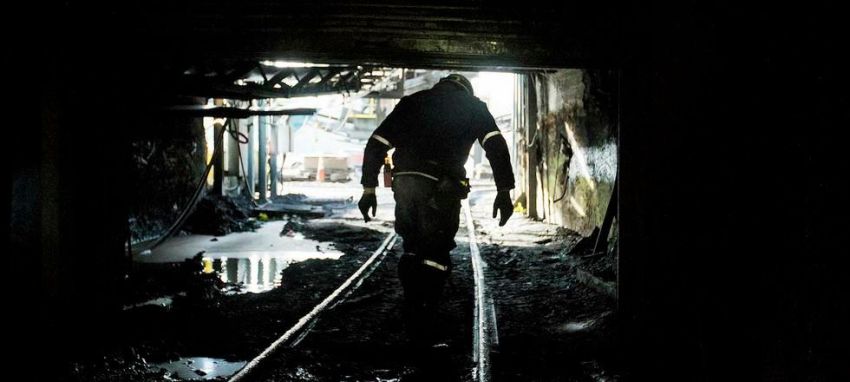
I had two stand-out conversations at the Hunter Jobs Alliance (HJA) launch on March 4 at the Rutherford Bowling Club in the Hunter Valley.
A union official mentioned to me that a prominent environmentalist had just acknowledged to him that you can’t close coal-fired power stations down tomorrow. A few minutes afterwards, the said “greenie” told me, in a similarly cheerful manner, that the same unionist had admitted to her that, yes, there was a need to seriously examine alternatives to coal.
I had these conversations over supper while workers in Hi-Vis gear and union shirts mixed it with white-collar types and activists. The supper menu reflected this diversity: party pies; meat balls and savs competed for attention with vegan wraps, sushi and mini quiches.
Workers and environmentalists had come together to discuss an environmentally-friendly, jobs-rich economic transformation under the auspices of the Hunter Jobs Alliance.
This dialogue is being generated by the changes in technology and energy production.
Carly White, a young fitter, noted this when she spoke about the need for a shift in how mining, manufacturing and power generation are done. The region’s four local coal-fired power stations, for example, are scheduled to close by 2035.
Such big changes to energy generation will, potentially, impact on 1000 production jobs at the Tomago Aluminium Smelter and affect another 3000 jobs in aluminium-related industries.
Nathan Clements, a coal worker, told the launch that young people like him were concerned about being forced to leave the region unless alternative jobs replaced the disappearing coal jobs.
The HJA views jobs and protecting the environment as intrinsically linked.
Jack Mundey, the late Builder’s Labourers Federation leader and communist activist, made this connection in the 1970s with the Green Bans. Union and resident action meant that communities have retained their local architectural heritage, green spaces and housing assets. Areas such as The Rocks in Sydney and Newcastle East, both saved from developers by the green bans, are now recognised as being attractive places to work, live and visit.
HJA coordinator Warwick Jordan said that workers and their communities need to be proactive in planning for the future and formulating common positions. Some external political operators would rather see communities divided than talking, he said.
Other states have responded to regional job losses with varying levels of success. In Victoria, the Latrobe Valley Authority, for example, was set up after the sudden decommissioning of the privatised Hazelwood Power Station. The Western Australian government’s Collie’s Just Transition Plan is a response to the looming closure of coal-fired power stations in the Collie region.
HJA is proposing the NSW government support setting up a regional statutory authority to help Hunter communities adjust to structural change. It says the new sovereign wealth fund, the NSW Generations Fund, could help the Hunter region plan for structural change.
![]() Other proposals listed in the HJA’s discussion paper include research on ways to attract “job-creating investment to the region”, such as household support, training, public and private investment, local content supply chains, as well as establishing “clear expectations of companies undertaking large-scale closures and retrenchments”.
Other proposals listed in the HJA’s discussion paper include research on ways to attract “job-creating investment to the region”, such as household support, training, public and private investment, local content supply chains, as well as establishing “clear expectations of companies undertaking large-scale closures and retrenchments”.
The HJA believes that the best time to plan for economic dislocation is before it happens. This is borne out by experience. Over the past 25 years, the Hunter has lived through the closure of the BHP steelworks, Phillips Lampworks, Kurri Kurri Aluminium smelter, Forjacs Dockyards, National Textiles among others, plus the run-down of rail manufacture and maintenance.
Experiences like these confirm Clements’ comment that private industry makes decisions about restructuring in its own, not community, interests.
The failure of this laissez faire approach to industrial policy was acknowledged recently by none other than Prime Minister Scott Morrison, who proposed using public funds to build new energy plants in the Hunter.
The HJA believes that decisions about economic change and investment should be made in the regions affected, and not in distant board rooms and politicians’ offices.
Workers and communities discussing their economy, their jobs and its environmental impact is an important and urgent conversation in the Hunter.
[Steve O’Brien, is a union activist in the Hunter and a member of Socialist Alliance.]